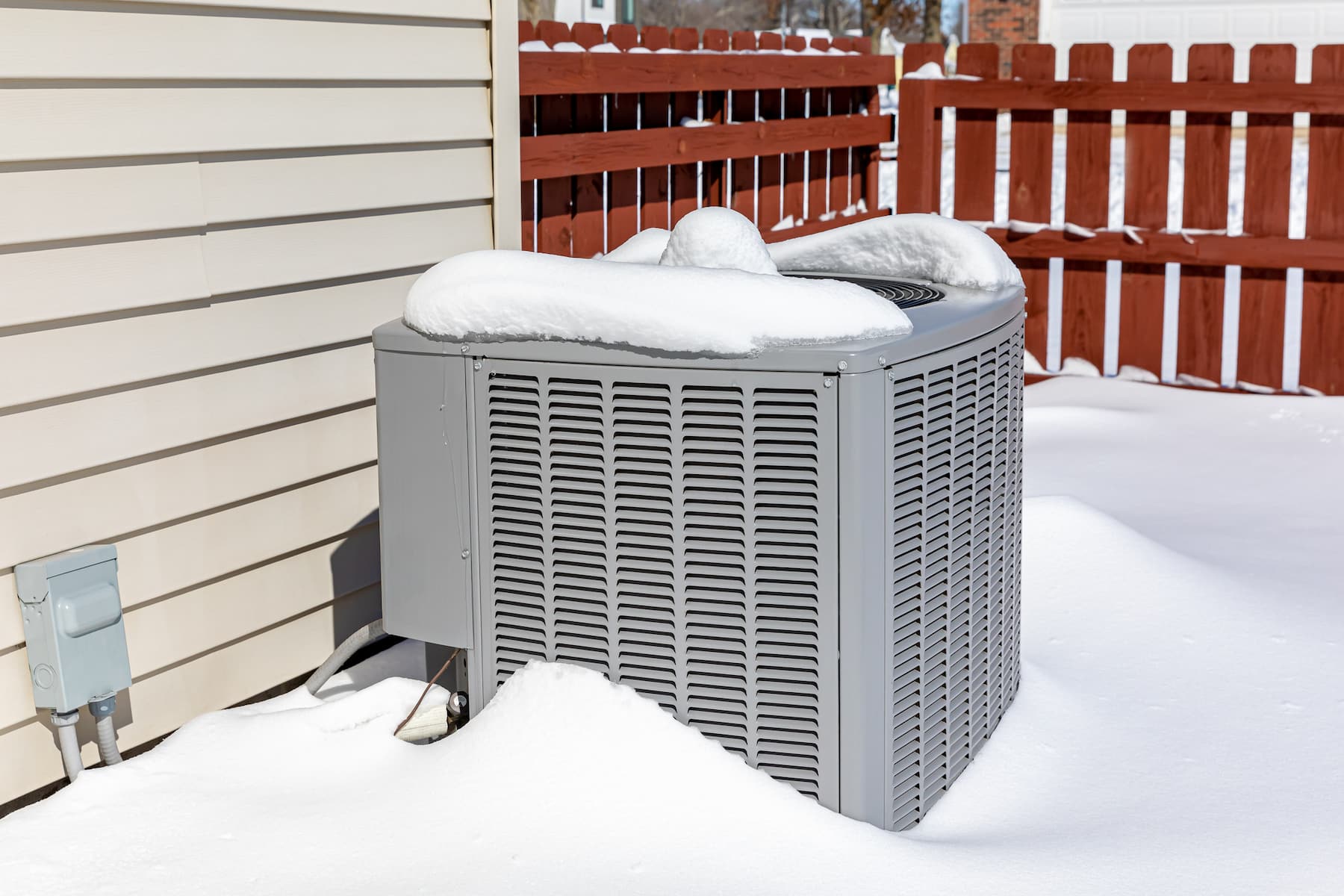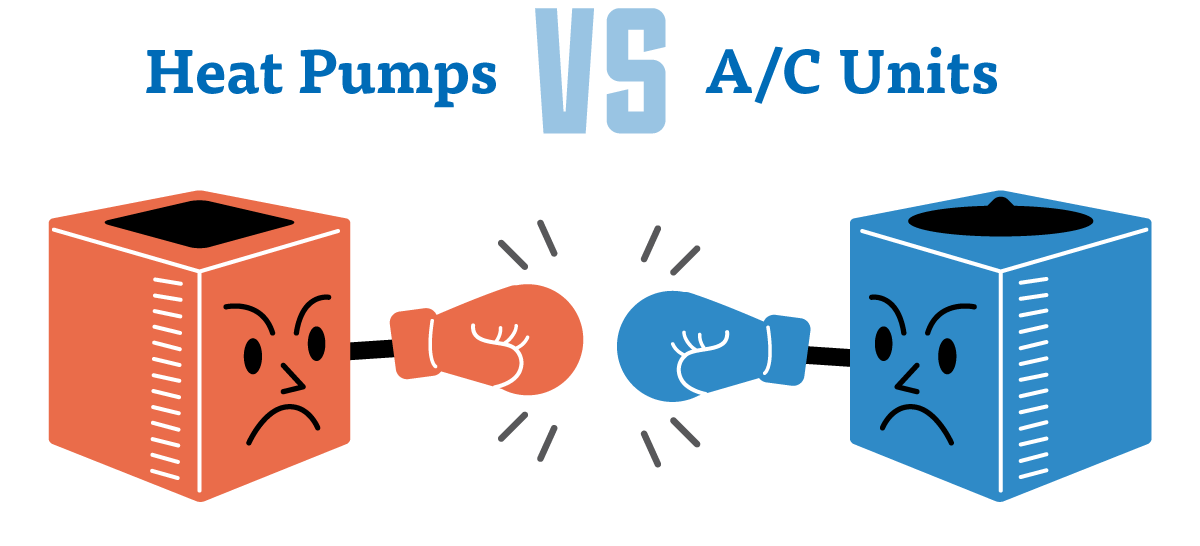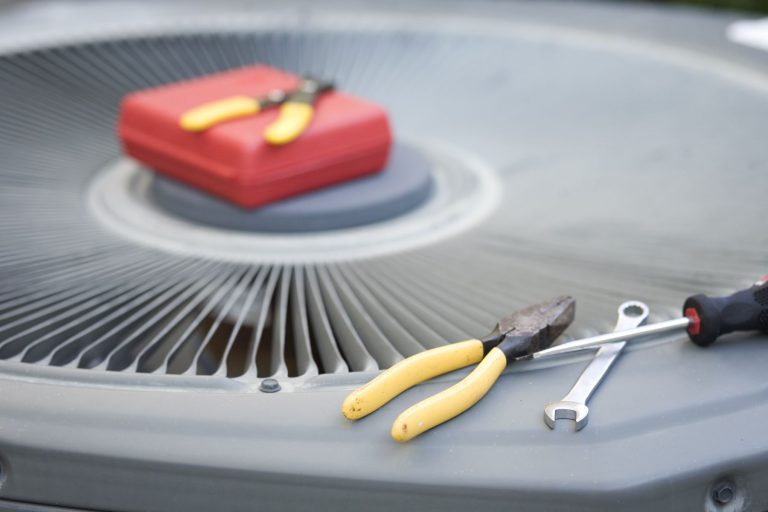
How Does a Heat Pump Work in Winter?
As the chill of winter sets in, the quest for a reliable heating solution becomes a priority for homeowners. In this blog, we’ll explore how heat pumps, an all-in-one HVAC system, work to keep your home warm and comfortable during the colder months.
What is a heat pump?
Heat pumps operate on a clever principle: transferring heat, not generating it. A heat pump is not your ordinary heating system—it’s a versatile machine that combines the cooling capabilities of an air conditioner with the warming powers of a space heater. Heat pumps efficiently transfer heat, avoiding the need to burn fuel to generate warmth.
This means no more installing separate systems for heating and cooling. Instead, imagine having a system that can keep your family cozy warm in the winter and cool in the summer.
How does it work?
A heat pump is a central air HVAC system designed to cool a space when in cooling mode and heat a space through “reverse cycle” in heating mode. The heat pump, just like air conditioning, does not generate cool or warm air but simply moves it around. They do this by capturing warmth from the outside air, even chilly air holds surprising heat energy! This liquid called the refrigerant, absorbs the outdoor heat, then gets pumped up by the compressor.
Finally, the warmed-up refrigerant releases the heat in the indoor unit, radiating cozy warmth into your home. This all-in-one feature provides an economical source of heat (the air, it’s free!) and uses much less energy in the process.
Types of heat pumps
Air source heat pumps
One of the most common types of heat pumps is the air-source heat pump. Inside this basic heat pump, you’ll find two fans, refrigerator coils, a reversing valve and a compressor. With the proper modification, air-source systems can also work with other types of indoor heating systems such as gas furnaces or other traditional heating systems.
Ductless heat pumps
If your home doesn’t have air ducts to distribute heat, you could use a special kind of heat pump called a mini-split ductless heat pump. A mini-split heat pump connects an outdoor air-source unit to multiple indoor units that in turn connect to water heat or space heaters.
The indoor air handlers for a mini-split system may be installed in the wall, ceiling, or on the floor, and are relatively small. Low ambient ductless mini splits can be an excellent cost-effective cold climate heat pump option.
How well does a heat pump work in cold weather?
One of the most common myths about heat pumps is that they don’t work well in cold weather. While this may be true for some of the older models, more modern models have the tech advancements to work very efficiently in colder climates. The key is choosing the right model and having a backup heating source.
It’s true that for areas that experience freezing winter temperatures for long periods of time, the heat pump will struggle to provide hot air. Since heat pumps draw heat from outside air, the colder the temperatures become, the less heat there is available, and the harder it will work.
Eventually, if the temperature continues to bite into the negatives, most heat pump systems will need backup from a secondary heating source such as a gas or electric furnace. If you have a backup heating source, the switch will happen automatically and without any impact to your comfort when installed properly.
Luckily, our area in Western Washington rarely experiences extreme cold. If your energy bills are climbing, a heat pump might still be the ideal solution, offering energy efficiency and environmental friendliness.
Choosing the right heat pump for colder climates
Picking the perfect heat pump for our Western Washington winters requires more than just size and brand. That’s where rating systems come in handy, helping you compare efficiency and performance in cold temperatures.
HSPF & SEER
These acronyms stand for Heating Season Performance Factor and Seasonal Energy Efficiency Ratio. Higher numbers usually mean better efficiency, translating to lower energy bills. Remember, these ratings are based on average seasonal temperatures, so consider your specific climate when making your choice.
Low Ambient Rating
This is one of the most important factors to look for when choosing a heat pump for colder temperatures. What you’re looking for specifically is:
- 100% Capacity Temperature: This is the lowest temperature at which the heat pump can maintain full heating capacity. The higher this number, the better it performs in colder weather.
- Shutoff Temperature: This is the point where the heat pump’s efficiency drops significantly, and it switches to backup heating (if you have one). Choose a heat pump with a shutoff temperature below your region’s coldest average winter temperatures.
- Inverter heat pumps are especially great for cold climates because they run similar to a furnace and have very good cold weather performance ratings. Homeowners love these types of heating systems because they’re very quiet and save money on energy bills.
Remember: While efficiency ratings are important, factors like your home size, insulation level, and budget also play a role. Our experts at Washington Energy Services can help you choose the ideal heat pump that fits your needs and budget, keeping you warm and saving you money.
You can get tax rebates for new heat pumps
Our local Washington utilities offer rebates for heat pumps because of the real energy savings they provide. The heat pump is also one of the ‘greenest’ ways to heat and cool your home because it is powered by renewable electricity. Visit the Washington Energy rebates section, to discover if there are any incentives in your area for switching over to a heat pump.
Leave the hard work to WES!
Our expert team will help you choose the ideal heat pump for your home and handle the seamless installation. Whether you need maintenance, tune-up, repair or installation we’ll ensure your new system is running smoothly and efficiently, keeping your home warm and worry-free.
Start with a free estimate, and let us take care of things from there.


